Related Research Articles
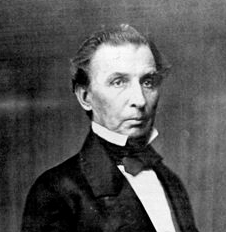
William Lewis Sharkey was an American judge and politician from Mississippi. A staunch Unionist during the American Civil War, he opposed the 1861 declared secession of Mississippi from the United States. After the end of the war, President Andrew Johnson appointed Sharkey as provisional governor of Mississippi in 1865.

John Jordan Crittenden was an American statesman and politician from the U.S. state of Kentucky. He represented the state in the U.S. House of Representatives and the U.S. Senate and twice served as United States Attorney General in the administrations of William Henry Harrison, John Tyler, and Millard Fillmore. He was also the 17th governor of Kentucky and served in the state legislature. Although frequently mentioned as a potential candidate for the U.S. presidency, he never consented to run for the office.

John Black was a politician from the U.S. state of Mississippi, most notably serving in the United States Senate as a Whig from 1832 to 1838.
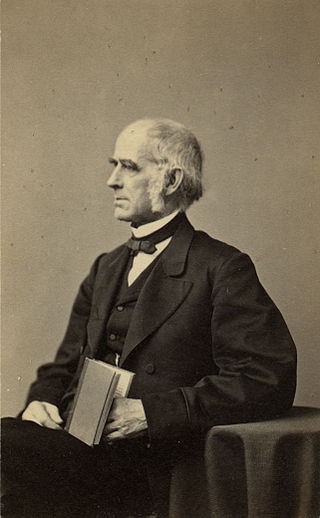
Emory Washburn was an American lawyer, politician, and historian. He was Governor of Massachusetts for one term, and served for many years on the faculty of Harvard Law School. His history of the early years of the Massachusetts Supreme Judicial Court is considered a foundational work on the subject.
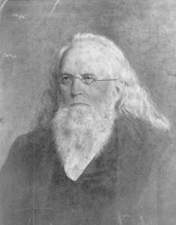
Sidney Breese, a lawyer, soldier, author and jurist born in New York, became an early Illinois pioneer and represented the state in the United States Senate as well as served as Chief Justice of the Illinois Supreme Court and Speaker of the Illinois House of Representatives, and has been called "father of the Illinois Central Railroad".

James Clark was a 19th-century American politician who served in all three branches of Kentucky's government and in the U.S. House of Representatives. His political career began in the Kentucky House of Representatives in 1807. In 1810, he was appointed to the Kentucky Court of Appeals, where he served for two years before resigning to pursue a seat in the U.S. House of Representatives. He served two terms in that body, resigning in 1816.

Pliny T. Merrick was an American attorney and politician from Massachusetts. He served as an associate justice of the Massachusetts Supreme Judicial Court.
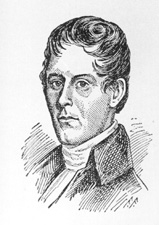
Powhatan Ellis was a justice of the Mississippi Supreme Court, United States senator from Mississippi, and a United States district judge of the United States District Court for the District of Mississippi.

Levi Hubbell was an American lawyer, judge, and politician. He was the first Wisconsin state official to be impeached by the Wisconsin State Assembly in his role as Wisconsin circuit court judge for the 2nd circuit. He was also Chief Justice of the Wisconsin Supreme Court prior to the 1852 law which organized a separate Supreme Court, and he later became the first United States Attorney for the Eastern District of Wisconsin. He served one term each in the Wisconsin State Assembly and New York State Assembly.
William R. Harris was a justice of the Tennessee Supreme Court from 1855 to 1858.
Alexander Montgomery was a Mississippi lawyer who served as a justice of the Supreme Court of Mississippi from 1831 to 1833.
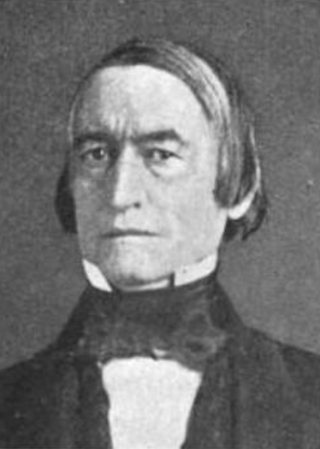
Cotesworth Pinckney Smith was an associate justice of the Supreme Court of Mississippi from 1832 to 1838, and again in 1840, and was chief justice from 1849 to 1861, returning to Associate Justice status from then until his death in 1862.
Edward Turner was a state legislator and public official who served as Justice of the Supreme Court of Mississippi from 1824 to 1832, and again from 1840 to 1843.
Isaac R. Nicholson was an American lawyer, politician, and jurist. He was a justice of the Supreme Court of Mississippi from the establishment of a new seat on the court in 1828 until the court was abolished in favor of a new structure in 1833. He served in the Mississippi House of Representatives from 1819-1827 including as the 7th Speaker of the Mississippi House of Representatives, serving from 1826 to 1827. He also served in the Mississippi Senate. In the 1830s he returned to the Mississippi House of Representatives.
John Preston Hampton was the first chief justice of the Supreme Court of Mississippi from 1818 until his death in 1829.
Richard Forman Reed was an American state legislator and justice of the Supreme Court of Mississippi from 1912 to 1915.
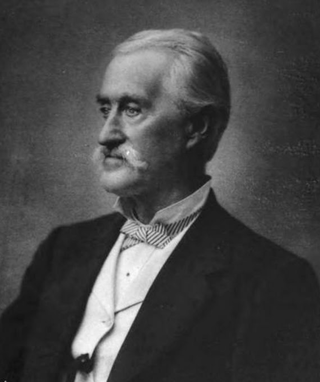
Alexander Lynn Collins was an American lawyer, judge, and politician. He was an important leader of the Whig Party in the early years of Wisconsin, serving as party chairman, nominee for United States Congress, for United States Senate, and for Governor of Wisconsin. He also served as a Wisconsin Circuit Court Judge and a member of the University of Wisconsin Board of Regents. In historical documents, his middle name is sometimes spelled "Linn" and he is sometimes referred to as "A. L. Collins."

The 1853–54 Massachusetts gubernatorial election consisted of an initial popular held on November 14, 1853, which was followed by a legislative vote that was conducted on January 9, 1854, which elected Whig Party nominee Emory Washburn. The ultimate task of electing the governor had been placed before the Massachusetts General Court because no candidate received the majority of the vote required for a candidate to be elected through the popular election.
Grafton Baker was the first chief justice of the Supreme Court of the New Mexico Territory, serving from 1851 to 1853.
Beverly R. Grayson was an American public official and state legislator in Mississippi. He served as a clerk of the territorial supreme court until 1808, and represented Adams County, Mississippi in the Mississippi House of Representatives in 1820 and 1821. He served as Speaker of the Mississippi House of Representatives in the 4th Mississippi Legislature, serving from January 1, 1821, to February 12, 1821.
References
- ↑ Franklin Lafayette Riley, School History of Mississippi: For Use in Public and Private Schools (1915), p. 380-82.
- ↑ Cashin, Joan E. (July 1, 2009). First Lady of the Confederacy: Varina Davis's Civil War. Harvard University Press. p. 18. ISBN 978-0-674-02926-2.
- 1 2 THE AMERICAN ALMANAC AND REPOSITORY OF USEFUL KNOWLEDGE, FOR THE YEAR 1853. 1853. p. 345.
- 1 2 3 4 Dunbar Rowland, Mississippi: Comprising Sketches of Towns, Events, Institutions, and Persons, Arranged in Cyclopedic Form, Vol. 2 (1907), p. 985.
- ↑ Thomas H. Somerville, "A Sketch of the Supreme Court of Mississippi", in Horace W. Fuller, ed., The Green Bag , Vol. XI (1899), p. 506.